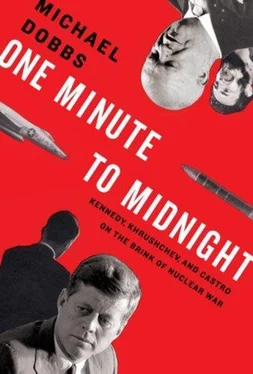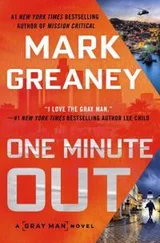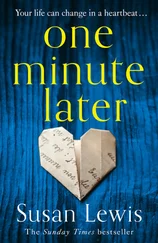This lack of attention is partly due to the dearth of historical data. Despite more than two years of Freedom of Information Act requests, the U.S. Air Force has yet to release a single document shedding any light on one of the most embarrassing incidents in the history of the Strategic Air Command. The official history of Maultsby’s unit, the 4080th Strategic Wing, for October 1962, is almost comically evasive. It lists his sortie as one of forty-two U-2 high-altitude air-sampling missions that month that were “100 per cent successful.” Only a government records keeper benefiting from the cloak of secrecy would dare use such bureaucratic nonsense to describe a nine-hundred-mile navigational error that caused alarms to go off from Moscow to Washington and might conceivably have provoked World War III.
The focus on the test of wills between Kennedy and Khrushchev at the expense of the chaotic vagaries of history was unfortunate. The missile crisis came to be viewed as an exemplary example of international crisis management. According to Bartlett and Alsop, the peaceful outcome of the Cuban crisis inspired “an inner sense of confidence among the handful of men with the next-to-ultimate responsibility.” The president’s men began to believe their own version of history. Confidence turned into hubris. JFK had ignored the advice of his own military experts, but had nevertheless won a great victory by sending carefully calibrated signals to the leader of the rival superpower. It did not occur to anybody that many of these messages were misinterpreted in Moscow, or that Khrushchev responded to imaginary signals, such as the mistaken belief that Kennedy would shortly go on television to announce an attack on Cuba. The success of the strategy was justification enough.
The most pernicious consequences of the new foreign policy mind-set—the notion that the United States could force the rest of the world to do its bidding through a finely calibrated combination of “toughness and restraint”—played out in Vietnam. The whiz kids around McNamara came up with a policy of “progressive squeeze-and-talk” to bring the North Vietnamese Communists to their senses. The objective was not to defeat the North but to use American airpower to send signals of intent to Hanoi, much as JFK had used the quarantine of Cuba to send a signal of determination to Khrushchev. The defense intellectuals in the Pentagon gamed out a series of moves and countermoves that demonstrated the futility of Hanoi’s continued defiance of the vastly superior might of the United States. A bombing campaign known as Rolling Thunder got under way in March 1965. But the North Vietnamese leaders were unfamiliar with game theory as taught at Harvard and promoted by RAND Corporation. They failed to behave in a “logical” manner and ignored the signals from Washington. Instead of backing down, they matched the United States escalation for escalation.
According to Clark Clifford, McNamara’s successor as secretary of defense, the architects of the Vietnam War were “deeply influenced by the lessons of the Cuban missile crisis.” They thought that concepts like “flexible response” and “controlled escalation” had helped Kennedy prevail over Khrushchev—and would work equally well in Vietnam. “Their success in handling a nuclear showdown with Moscow had created a feeling that no nation as small and backward as North Vietnam could stand up to the power of the U.S.,” Clifford explained. “They possessed a misplaced belief that American power could not be successfully challenged, no matter what the circumstances, anywhere in the world.”
A former American ambassador to Saigon, Fritz Nolting, remarked on the overconfidence of McNamara and his colleagues in similar terms. “Very gung-ho fellows,” he recalled in an interview for a 1978 book. “Wanting to get things straightened up in a hurry, clean up the mess. We’ve got the power and we’ve got the know-how and we can do it. I remember on one occasion cautioning Bob McNamara that it was difficult, if not impossible, to put a Ford engine into a Vietnamese ox-cart.”
“What did he say?” the interviewer wanted to know.
“He agreed, but he said ‘we can do it.’”
A somewhat different—but equally mistaken—lesson from the Cuban missile crisis was drawn by modern-day neoconservatives. In planning for the war in Iraq, they shared the conceit that the political will of the president of the United States trumps all other considerations. They were fervent believers in the “eyeball to eyeball” version of history. But they took the argument one step further. In a speech in Cincinnati in October 2002 shortly before the Iraq war, President George W. Bush praised JFK for being willing to resort to force to eliminate a new kind of peril (the “mushroom cloud”) to the American homeland. He cited with approval Kennedy’s statement on October 22, 1962, that “we no longer live in a world where only the actual firing of nuclear weapons represents a sufficient challenge to a nation’s security to constitute maximum peril.” In effect, Bush was crediting JFK as the authority for junking the Cold War strategy of “containment” that had been in effect for more than half a century. What he omitted to say was that his predecessor stubbornly resisted calls from some of his closest advisers for a military solution. The results of the shift in American foreign policy from deterrence to preemption soon became visible in Iraq.
The hubris displayed by Bush administration officials in Iraq is reminiscent of the “best and the brightest” in the aftermath of the missile crisis. Defense Secretary Donald Rumsfeld believed that the traditional rules of warfare had been superseded by technological advances and “shock and awe.” He used the condescending remark, “Stuff happens,” to dismiss early signs of anarchy on the streets of Baghdad. Convinced of America’s unchallengeable military superiority, Rumsfeld had little patience with the notion that everything can be screwed up by “some sonofabitch.” Like his Vietnam-era predecessor, he was a “gung-ho fellow” with a “can-do” mentality.
Writing about the past, Arthur Schlesinger observed, is a way of writing about the present. We reinterpret history through the prism of present-day events and controversies. When we look back on those thirteen tumultuous days in October 1962, we view them with the knowledge of everything that has happened since: Vietnam, the end of the Cold War, the demise of the Soviet Union, 9/11, the wars in Afghanistan and Iraq. Future historians will examine the missile crisis from still different vantage points.
Consider the question of winners and losers. In the immediate aftermath of the crisis, most people, certainly most Americans, would probably have singled Kennedy out as the big winner. He achieved his basic objective—the removal of Soviet missiles from Cuba—without plunging the world into a catastrophic war. The big loser, at least in his own mind, was Fidel Castro. His views had counted for little. He learned of Khrushchev’s decision to withdraw the missiles over the radio, and was so furious that he smashed a mirror. Cuba was merely a pawn in the superpower confrontation. And yet, in a perverse way, the missile crisis guaranteed Castro’s hold on power in Cuba for more than four decades. Little over a year after his greatest foreign policy triumph, Kennedy was dead, murdered by a Fair Play for Cuba activist. A year later, Khrushchev was gone too, in part because of his Cuban adventure. Castro was the great survivor.
As the years went by, it became clear that Kennedy’s missile crisis victory had produced many unintended consequences. One was an escalation in the Cold War arms race as Soviet leaders sought to erase the memory of the Cuban humiliation. “You got away with it this time, but you will never get away with it again,” the Soviet deputy foreign minister, Vasily Kuznetsov, told a senior American official shortly after the removal of the Soviet missiles. The Soviet Union would never again allow itself to be in a position of strategic inferiority. In order to achieve military parity with the United States, Khrushchev’s successors embarked on a vast intercontinental ballistic missile program.
Читать дальше












